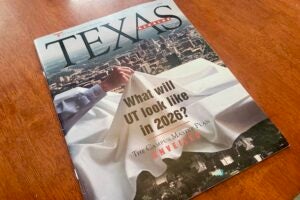On the morning of the election, the narrative for Democrats couldn’t have been brighter. Democrats were favored narrowly to retake the Senate and finally tip the conservative ideological advantage of the past four decades on the Supreme Court. The future belonged to the Democrats. The only question was how Hillary Clinton could bring the country together.
Those dreams are now gone and a stunned Democratic Party and their supporters who care about progressive public policies face a bleak future.
For all of the talk of trying to understand what President-elect Donald Trump really wants to do, total GOP control of Congress means that the Supreme Court will go back to a conservative majority. That means no rulings against voting rights limitations passed in states, the end of any challenges to Citizen’s United, and perhaps the beginning of the end of Roe v. Wade in lieu of state control.
With an increasingly conservative GOP in control of Congress, it probably also means the realization of their hopes in funding cuts, cutting back on social legislation, and the end of Obamacare, give or take the ability of 48 Senate Democrats to block any of this. Will President Trump really build a wall, deport millions and restrict refugees and immigrants by religion or country of origin? Who knows? Let alone what happens to NAFTA, the nuclear settlement with Iran, our obligations to NATO and relations with Russia.
There is a tendency to overstate the demise of parties that lose national elections.
Two years after Barry Goldwater lost in a historic landslide in 1964, the GOP took back many lost seats in Congress and then elected Richard Nixon president two years later.
Two years after George McGovern’s landslide loss in 1972, Democrats won a landslide in Congress and Jimmy Carter took the White House in 1976.
Twelve years of what seemed to be a permanent GOP presidential majority that started in the ’80s led to Bill Clinton. Barack Obama came to Washington with large majorities of Democrats in Congress and state houses in 2008, but two years later, a tea party revolt began to tear that down.
There’s little solace that Clinton, in all likelihood, will actually win a plurality of the overall national votes.
Given the total surprise among pundits, pollsters and experts that she lost at all, this was still a very close election. Trump’s margin in Michigan, Wisconsin and Pennsylvania was just a total of 111,602 votes.
Give Clinton 112,000 more votes and she takes those three states and becomes the 45th president. This is just how close historic change sometimes is.
So for Democrats, what now? For all of the talk that the Republicans were about to have an internal civil war after a Trump loss, do the Democrats have a Sanders/Clinton ideological battle of their own brewing?
With a continuation of GOP dominance in state legislatures, will the lack of a Democratic bench of potential candidates, something that hurt their chances with weaker candidates running for the Senate in North Carolina and Pennsylvania (along with Ohio and Wisconsin, where younger, more energetic candidates would have been better than the old has-beens that they nominated) guarantee a lack of Democratic competition for the near future in congressional contests?
For those Democrats who think a President Trump is guaranteed, by temperament and lack of experience, to be unpopular, remember that his blitz thru the Republican primaries was driven by the numbers he drew by being different and frankly much more interesting than his establishment opponents.
I suspect that by his unusual rhetoric alone, he is likely to remain popular with his angriest voters. For all of the Democratic opposition to domestic policies under George W. Bush, it was not public policy per se that led to a Democratic congressional comeback in 2006; it was the blunder of our war in Iraq, but only after Hurricane Katrina compounded a feeling that the administration was incompetent.
So although it may be bleak for Democrats, they still commend the support of half of America. And this is a candidate-centric electoral system. Who knew a year ago that an orange-haired candidate with no political experience would be about to go to the White House. Remember that four years before he swept into office, few knew about a man with an unusual name, Barack Obama. There are surprises out there, and maybe there’s someone out there who’ll lead a re-energized Democratic Party sometime soon. That has to be their hope.
Paul Stekler is a documentary filmmaker and chair of the Radio-Television-Film Department in the Moody College of Communication at The University of Texas at Austin.
A verison of this op-ed appeared in The Rivard Report and the McAllen Monitor.
To view more op-eds from Texas Perspectives, click here.
Like us on Facebook.




